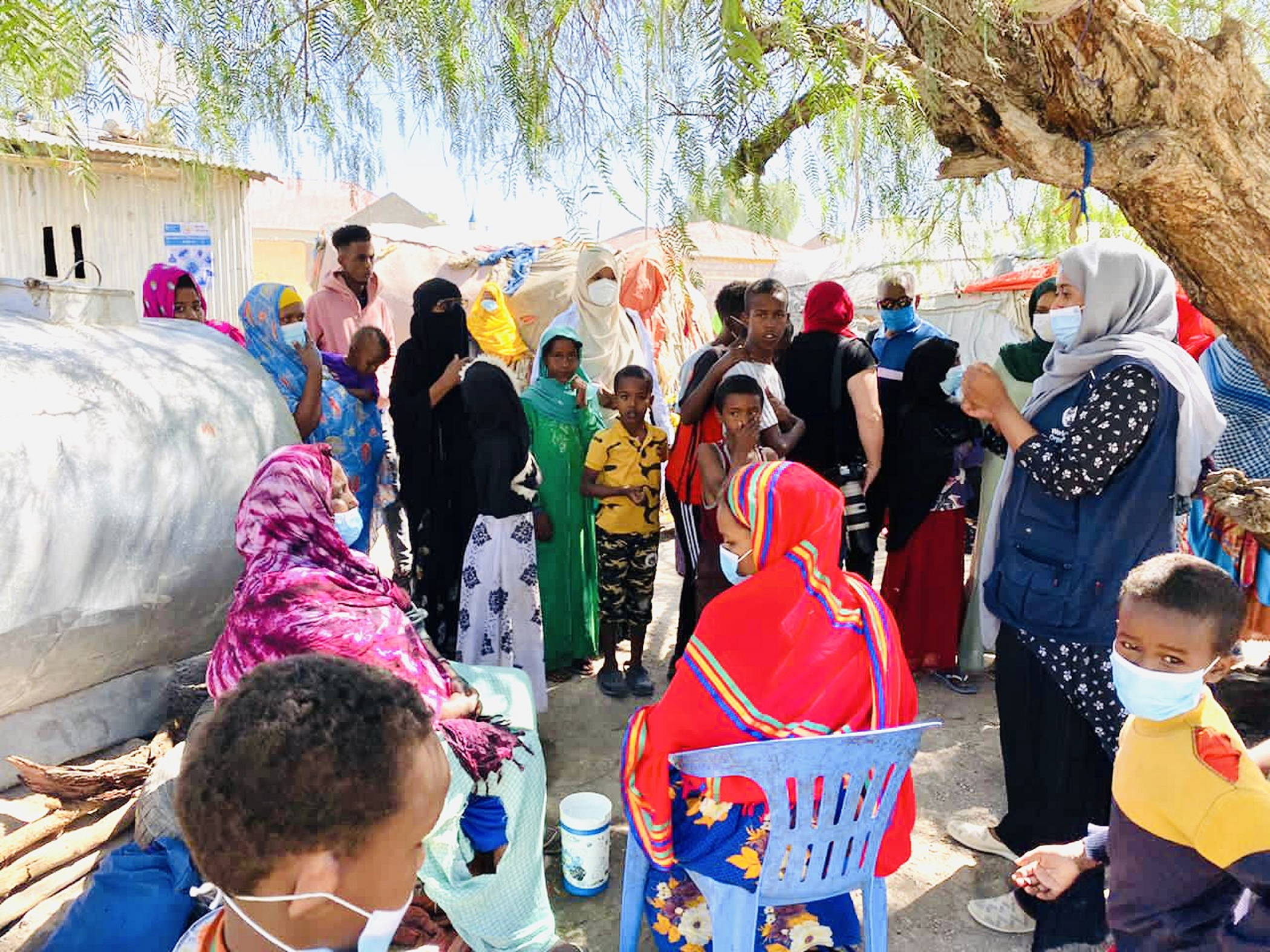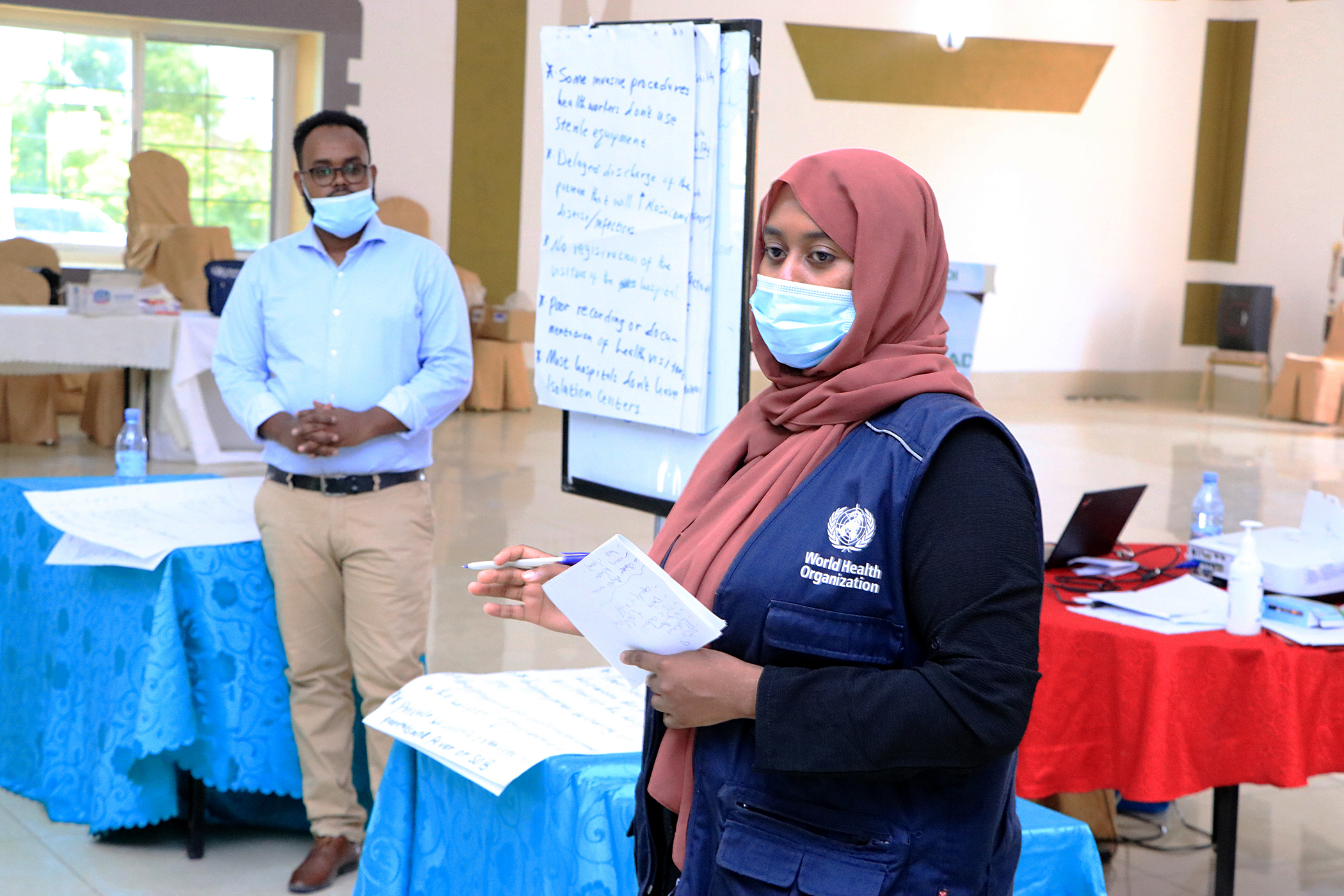When the coronavirus outbreak was declared a pandemic, health experts in Somaliland were concerned about their ability to control and respond to the virus, given the fragile health system in the self-declared republic.
“We don’t have enough equipment in the hospitals and enough ventilators and oxygen, so how can we respond to COVID-19?” Fatima Ismail, a doctor in the capital city of Hargeisa, told Global Citizen.
“When we compare our capacity as a government, as a health system, with European countries and the USA, they have [strong] capacity and couldn’t manage to control the virus … It was a big [concern] for Somalilanders,” she added.
Ismail, who works for the World Health Organization (WHO) as an emergency officer for the COVID-19 response, supervises activities and teams related to tracking cases in the republic.
Somaliland had more than 1,200 COVID-19 cases and 42 deaths, as of Dec. 15, according to ministry of health figures provided by Ismail.
While these figures are lower than experts like Ismail anticipated, she said health care workers in the republic face challenges that hinder their ability to care for COVID-19 patients.
 Fatima Ismail, who works for the World Health Organization (WHO) as an emergency officer for the COVID-19 response, supervises activities and teams related to tracking cases in the republic.
Fatima Ismail, who works for the World Health Organization (WHO) as an emergency officer for the COVID-19 response, supervises activities and teams related to tracking cases in the republic.
Fatima Ismail, who works for the World Health Organization (WHO) as an emergency officer for the COVID-19 response, supervises activities and teams related to tracking cases in the republic.
“In my last visit in the isolation center here in Hargeisa, the doctors said, ‘Fatima, we have ventilators, but we don’t know how to use them,’” Ismail explained. “They need training on how to intubate a patient. Even if we have the equipment, we don’t have the capacity.”
Equipment, including oxygen concentrators and cylinders, has been provided to hospitals and isolation centers by the health ministry and private sector donors, but they are not being fully utilized, according to Ismail.
In late July, Somaliland lifted all restrictions on air travel, border crossings, businesses, and social gatherings. Since then, Ismail said that residents stopped taking precautions, such as social distancing and wearing masks in public places like markets.
“Here, there is no policy. If someone doesn't wear a mask, no one will ask him or her why, so the problem is the protective measures are weak,” she explained.
In rural areas, negative health-seeking behaviors are common as many people prefer to stay home when ill rather seek health care, Ismail said.
During the pandemic, this has been compounded by stigma. In Somalia and Somaliland, stigma around the virus has discouraged people from reporting their symptoms and has reportedly made some leave their homes to hide in villages, where they pose a risk to others.
Ismail has also encountered COVID-19 denialism among people who believe the virus is chikungunya, a viral infection transmitted through the bites of infected mosquitoes, which is prevalent in Somaliland, and rarely fatal.
To counteract these challenges, Somaliland has tapped into a network of community health workers, which are part of an existing matrix that previously supported polio campaigns in the republic. These workers, known by people in the community, go door to door to ask people if they have COVID-19 symptoms, such as a fever or cough.
“They contribute a lot in detecting many cases at the community level ... especially in the nomadic and rural areas where health facility centers are limited,” Ismail said.
In urban areas, community health care workers visit between 30 to 40 households per day. In nomadic areas, where households can be half a mile apart and transportation is limited, community health workers reach around 10 households per day.
When a community health care worker suspects a COVID-19 case, they report it to health workers at the district and regional levels, who have the capacity to test for the virus. When positive cases are detected, the community health care workers support with contact tracing.
Ismail, who is 28, grew up in the United Arab Emirates, and frequently spent her holidays in Somaliland, where her parents are from. In 2017, after graduating from medical school in Jordan, Ismail noted that many of her counterparts who studied abroad did not return to Somaliland.
“I said [to myself], ‘Fatima, if everyone is going ... then the country will not change. I have to stay and I have to try to do my best in contributing to improve the health system of Somaliland,” Ismail said.
![“I said [to myself], ‘Fatima, if everyone is going … then the country will not change. I have to stay and I have to try to do my best in contributing to improve the health system of Somaliland,” Ismail said, after graduating from medical school in Jordan.](https://media.globalcitizen.org/thumbnails/bb/fd/bbfd4393-abbb-4b18-81ac-2371a376c7db/fatima_ismail_act_accelerator_courtesyoffatim_003.jpg__2100x1400_q85_crop_subject_location-1050%2C700_subsampling-2_upscale.jpg) “I said [to myself], ‘Fatima, if everyone is going … then the country will not change. I have to stay and I have to try to do my best in contributing to improve the health system of Somaliland,” Ismail said, after graduating from medical school in Jordan.
“I said [to myself], ‘Fatima, if everyone is going … then the country will not change. I have to stay and I have to try to do my best in contributing to improve the health system of Somaliland,” Ismail said, after graduating from medical school in Jordan.
“I said [to myself], ‘Fatima, if everyone is going … then the country will not change. I have to stay and I have to try to do my best in contributing to improve the health system of Somaliland,” Ismail said, after graduating from medical school in Jordan.
Despite the challenges, the doctor continues to work towards that goal. She said she balances both optimism and concern when it comes to Somaliland’s COVID-19 response.
When the republic first went into lockdown and people lost their means of income, communities banded together to provide food and basic necessities for neighbors who were in need.
“I think we are doing well, and we, as Somalilanders, have this behavior or this habit that we help each other ... but still, when it comes to technical things, we need support, we need more training,” she said.
Following the A-Team is a content series that profiles the women working on the ground to combat COVID-19 via the ACT-Accelerator.
Launched in April by seven global partners, the ACT-Accelerator is a unique coalition aimed at accelerating global efforts against the COVID-19 pandemic. Its members are working together to develop tests, treatments, and vaccines as quickly as possible, while also strengthening the world’s most fragile health systems.
The organization desperately needs financial support from governments around the world. You can join us in calling on world leaders to fund the ACT-Accelerator by taking action here.
Disclosure: This series was made possible with funding from the Bill and Melinda Gates Foundation. Each piece was produced with full editorial independence.

